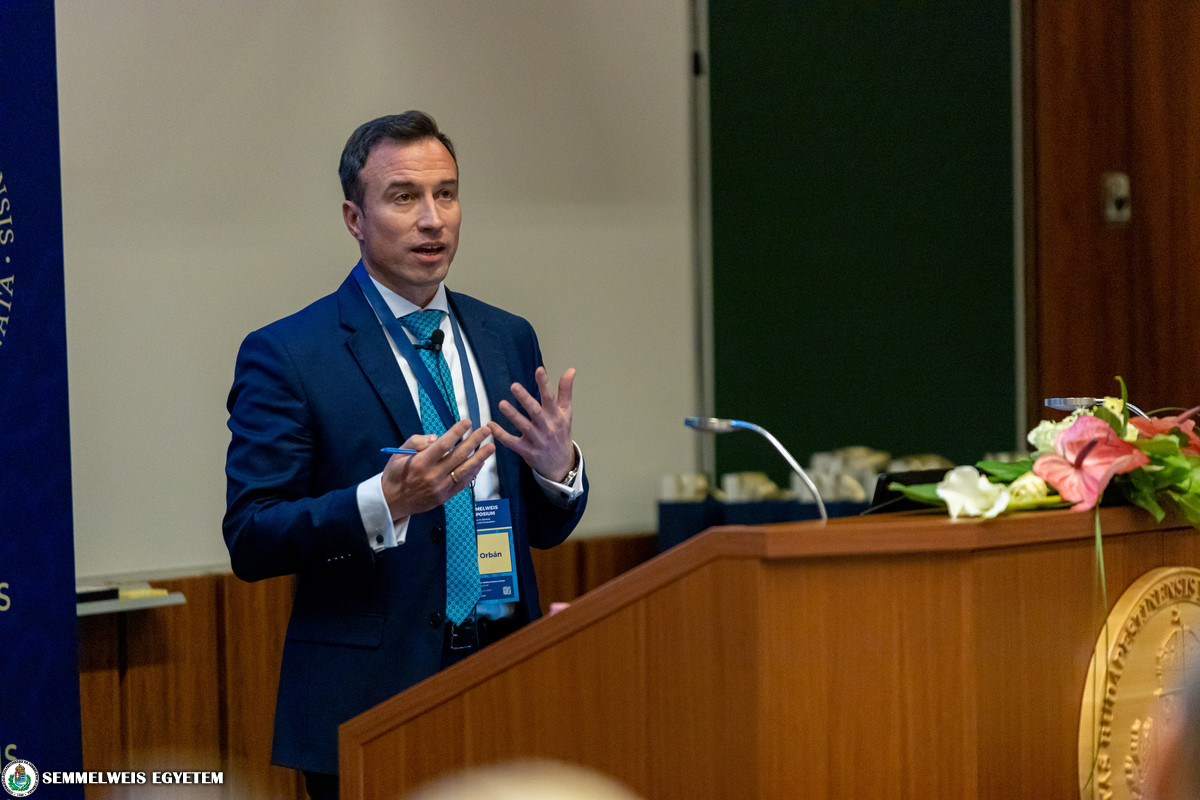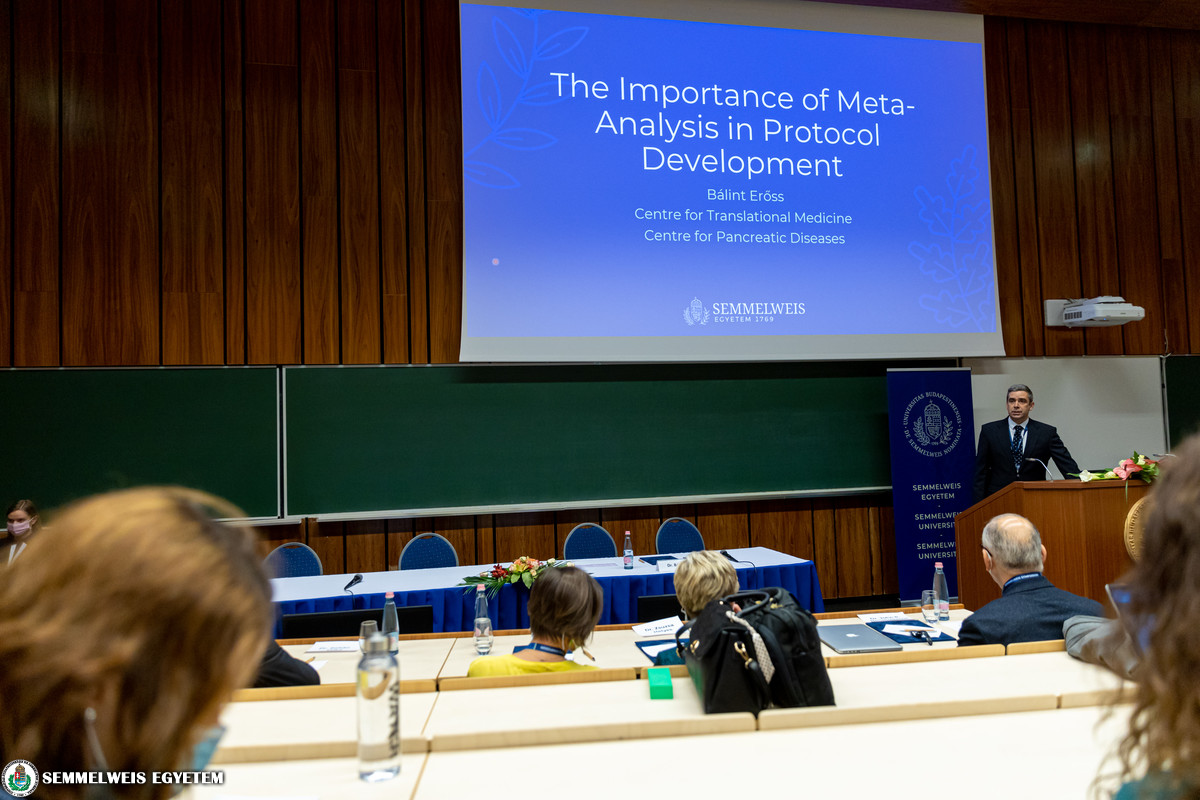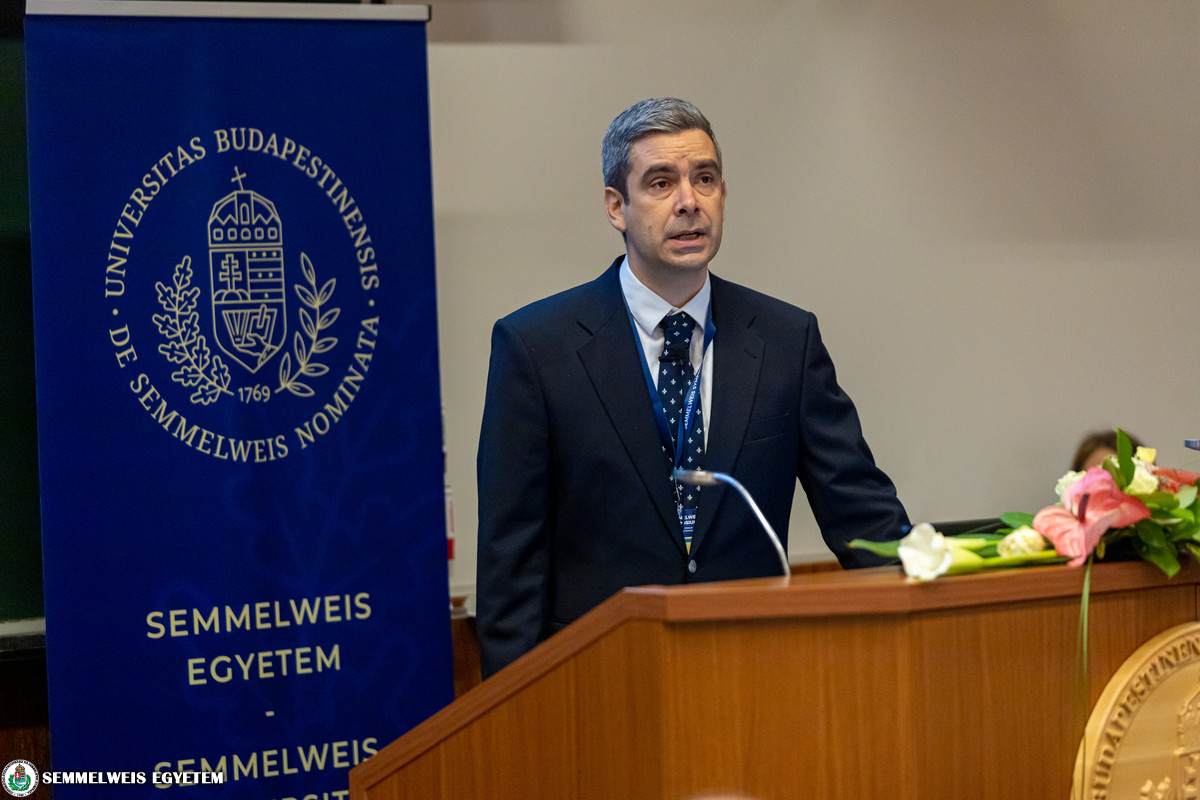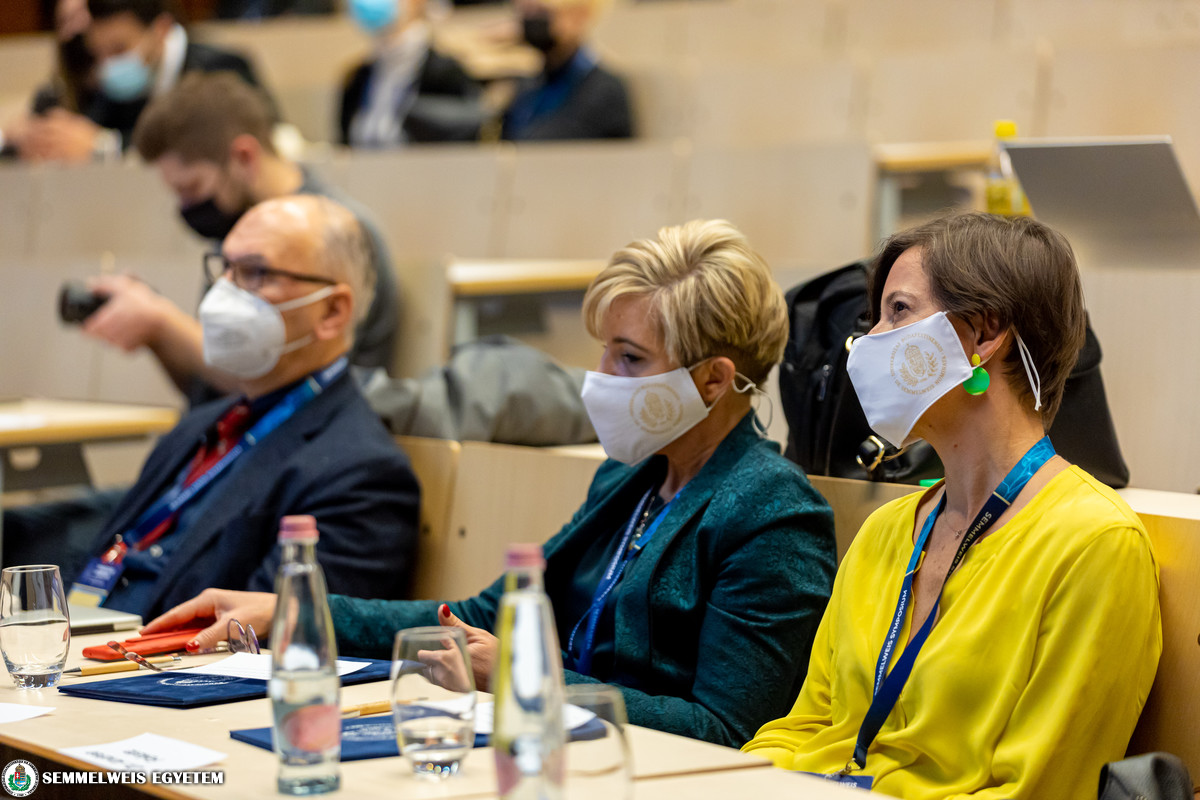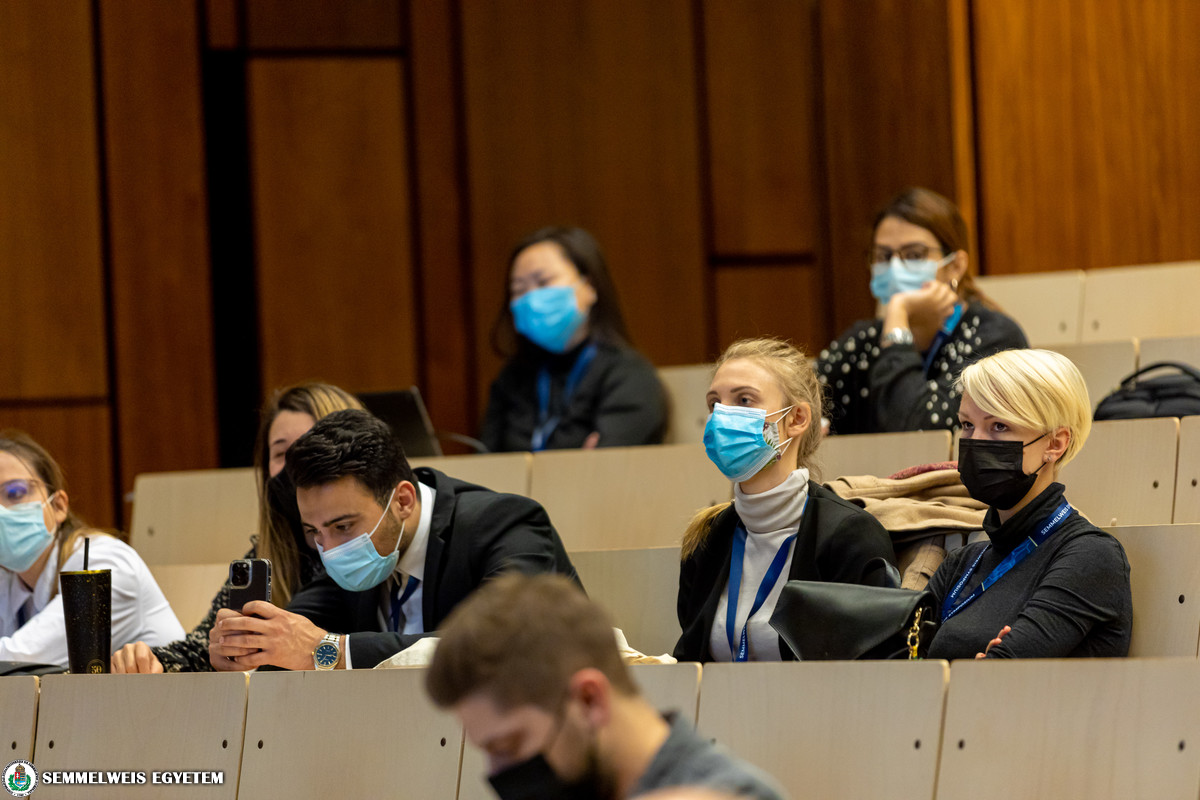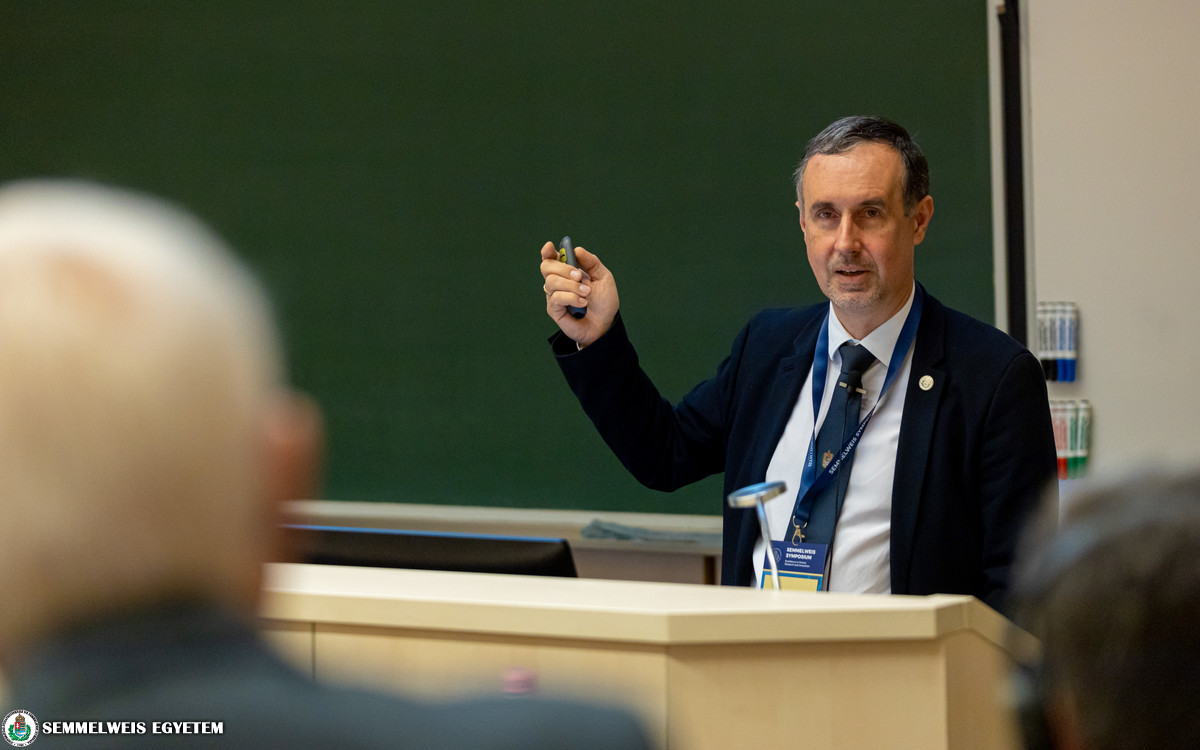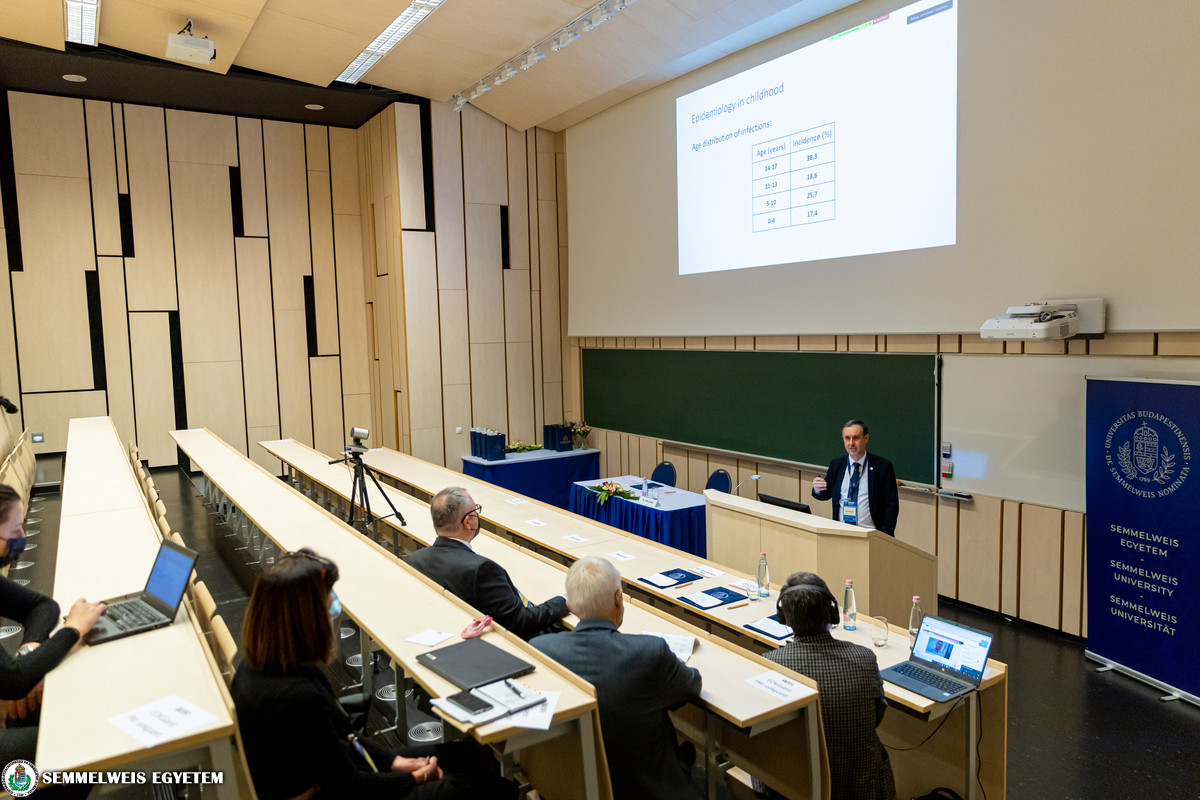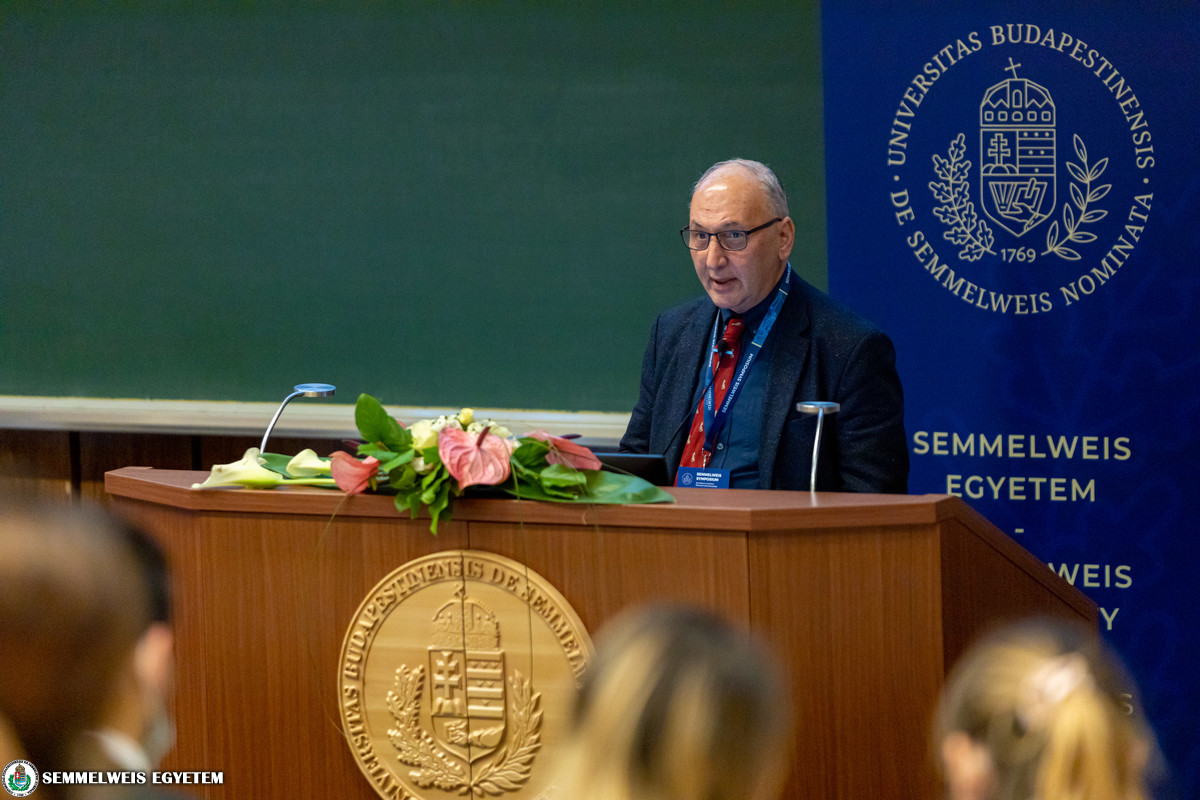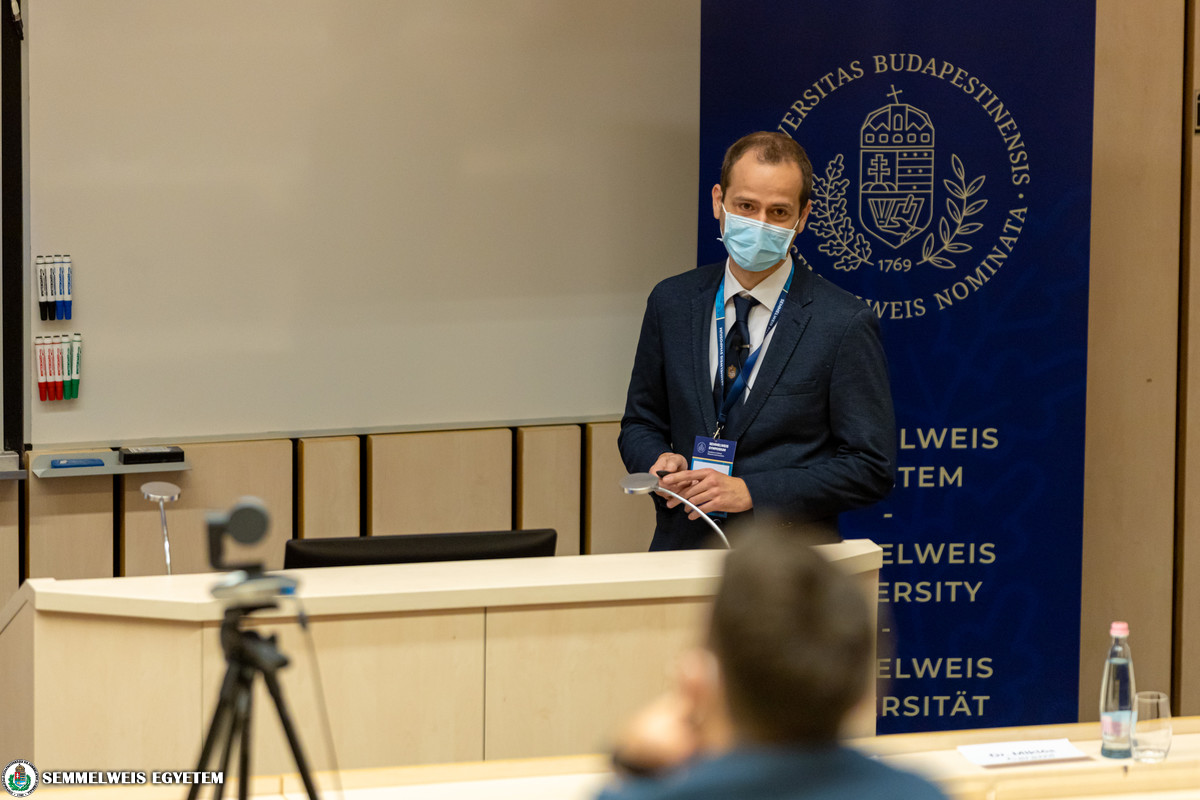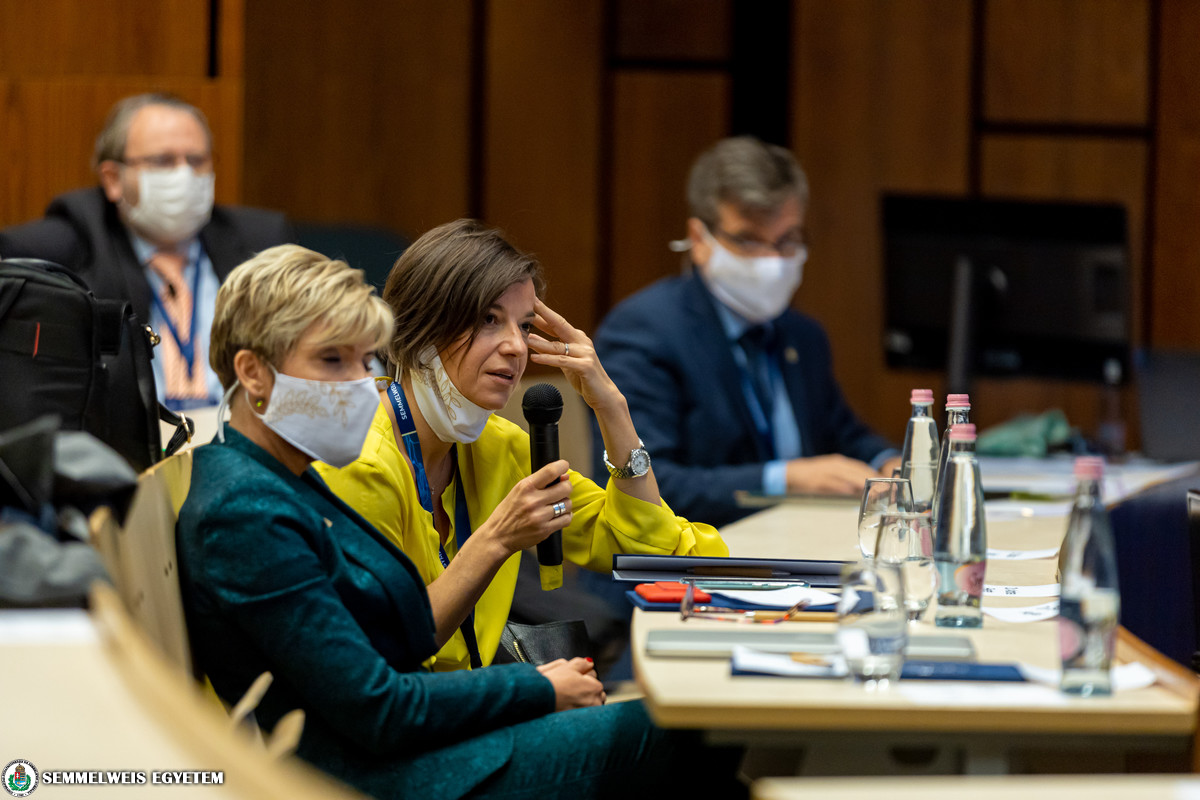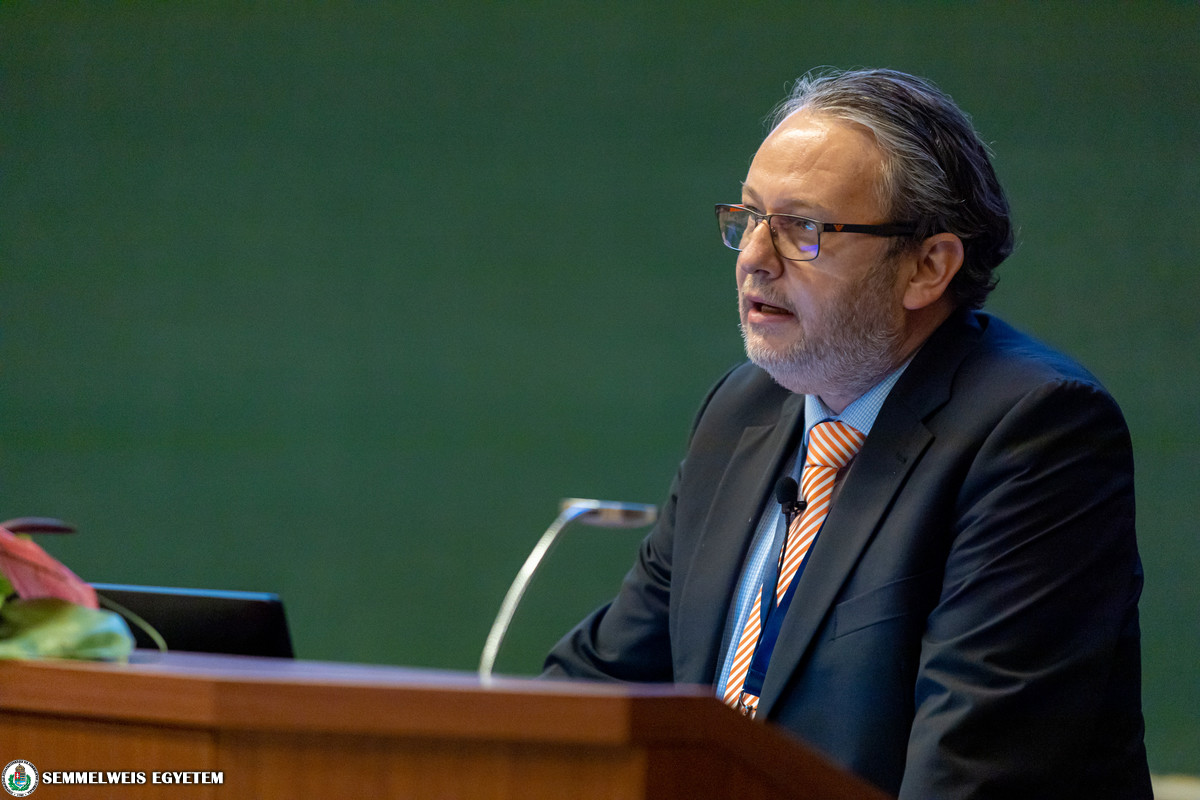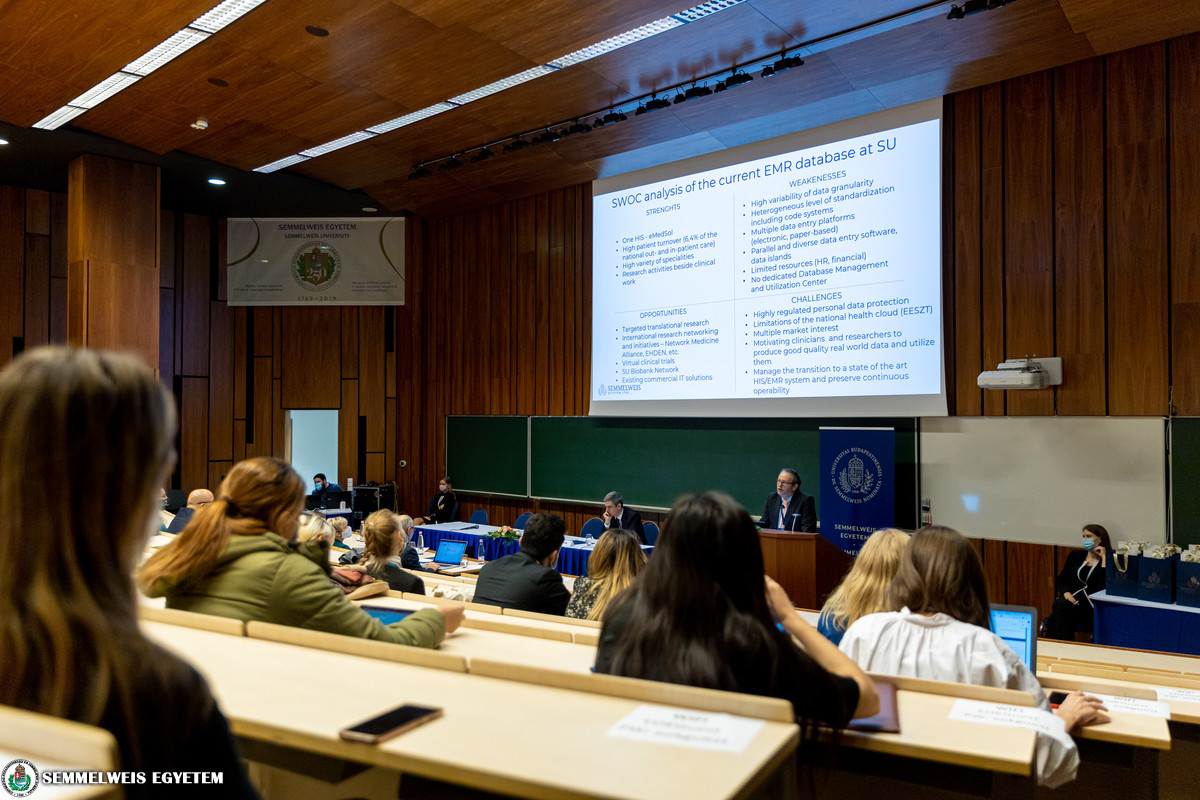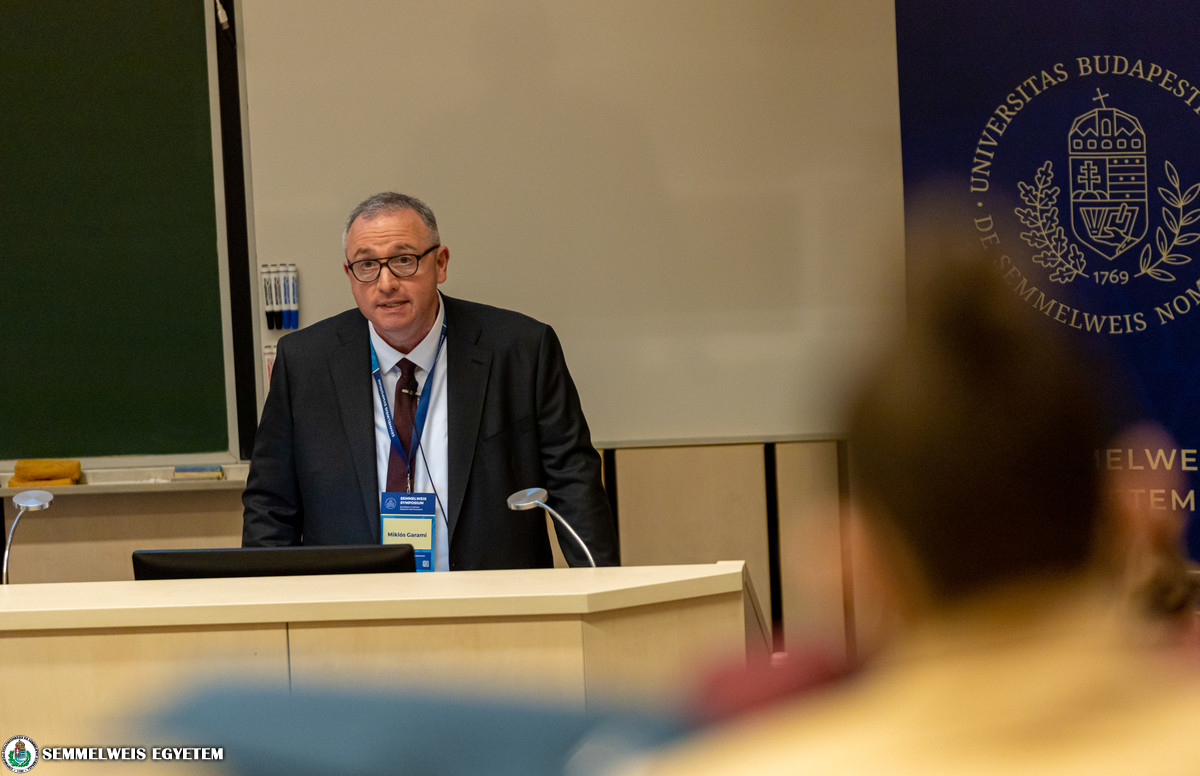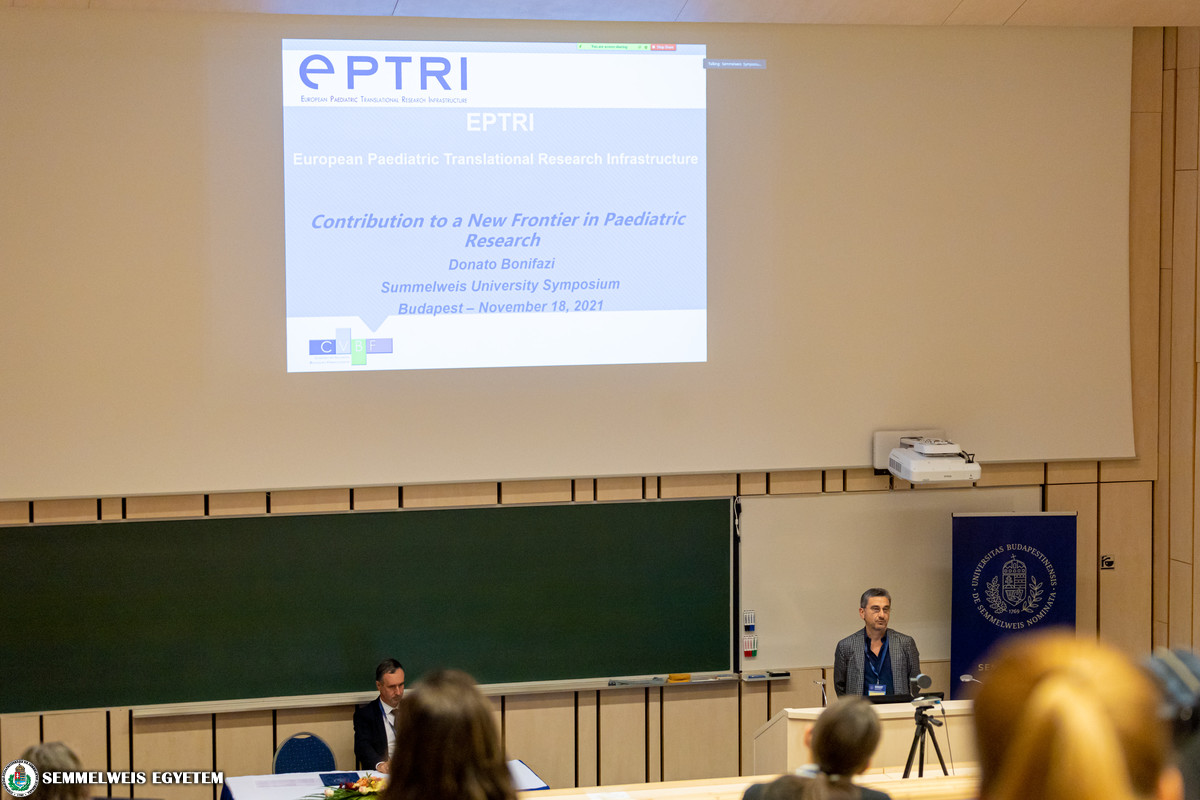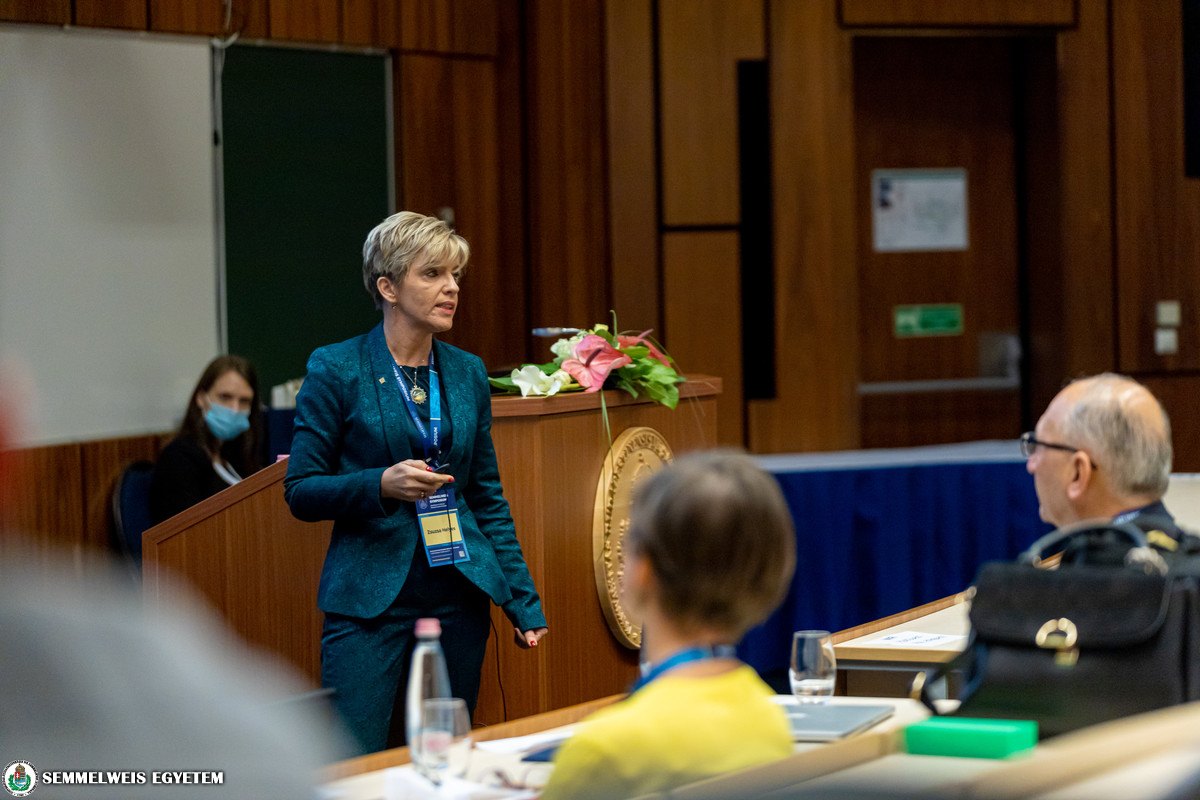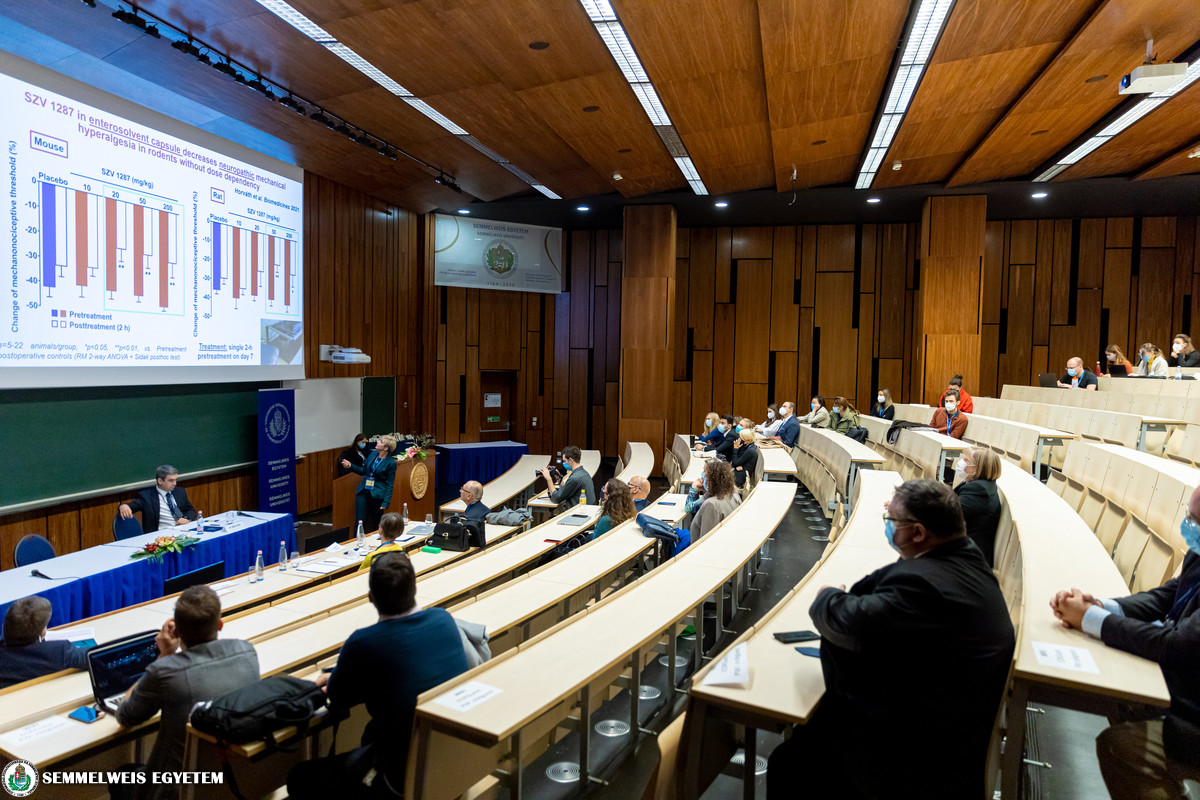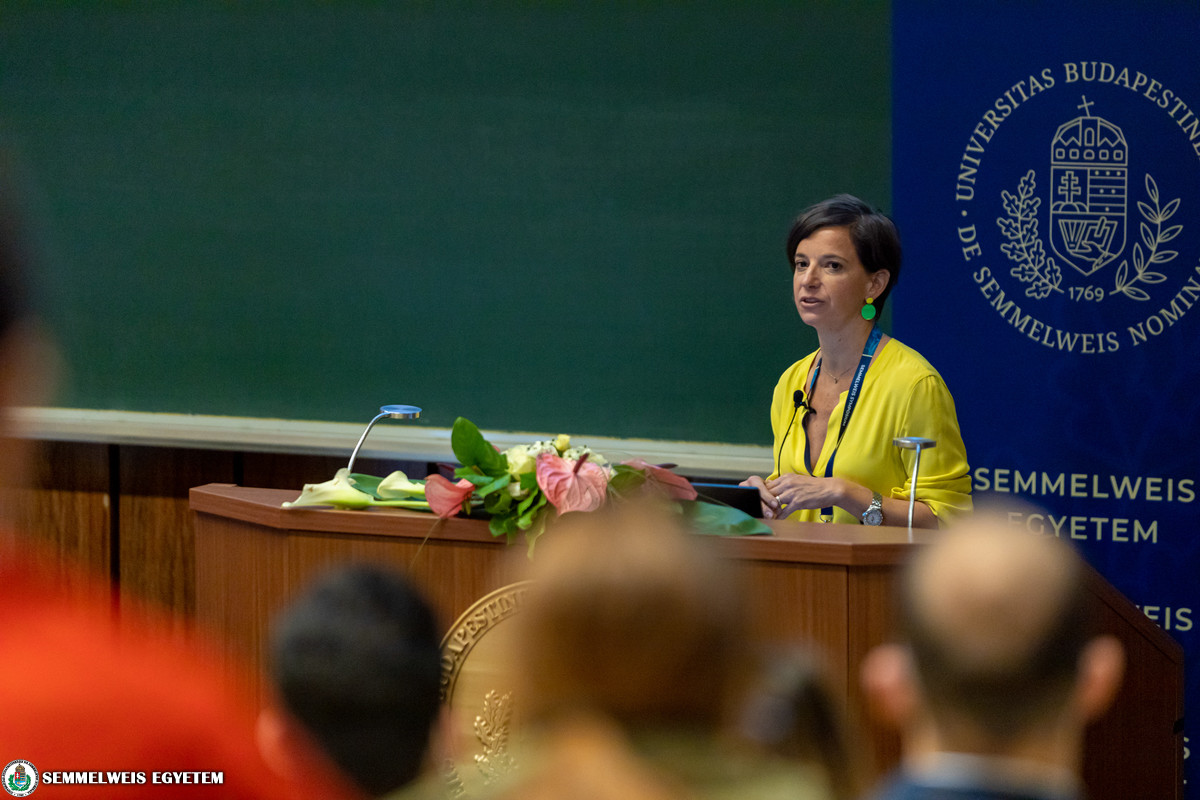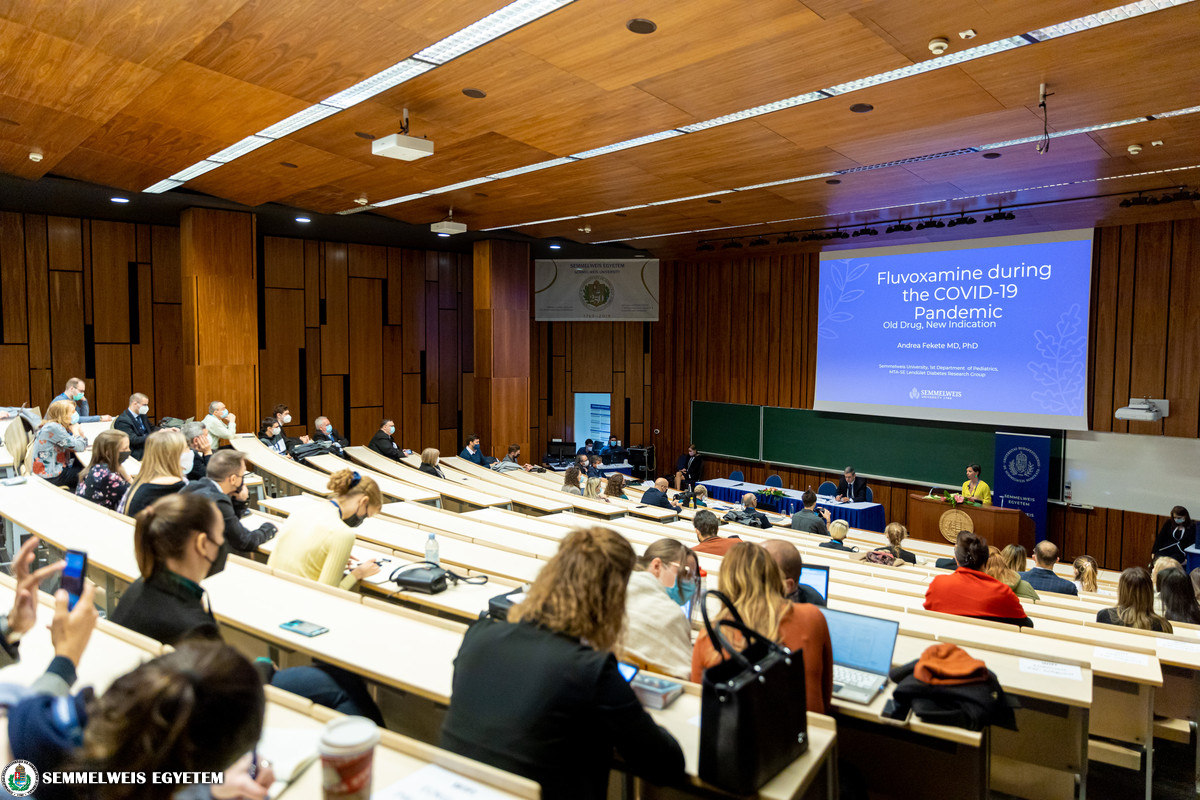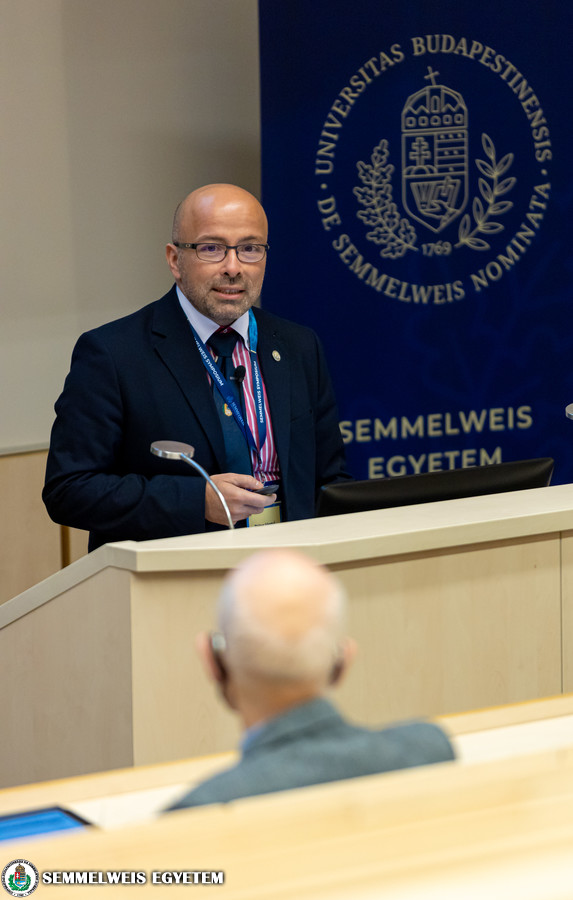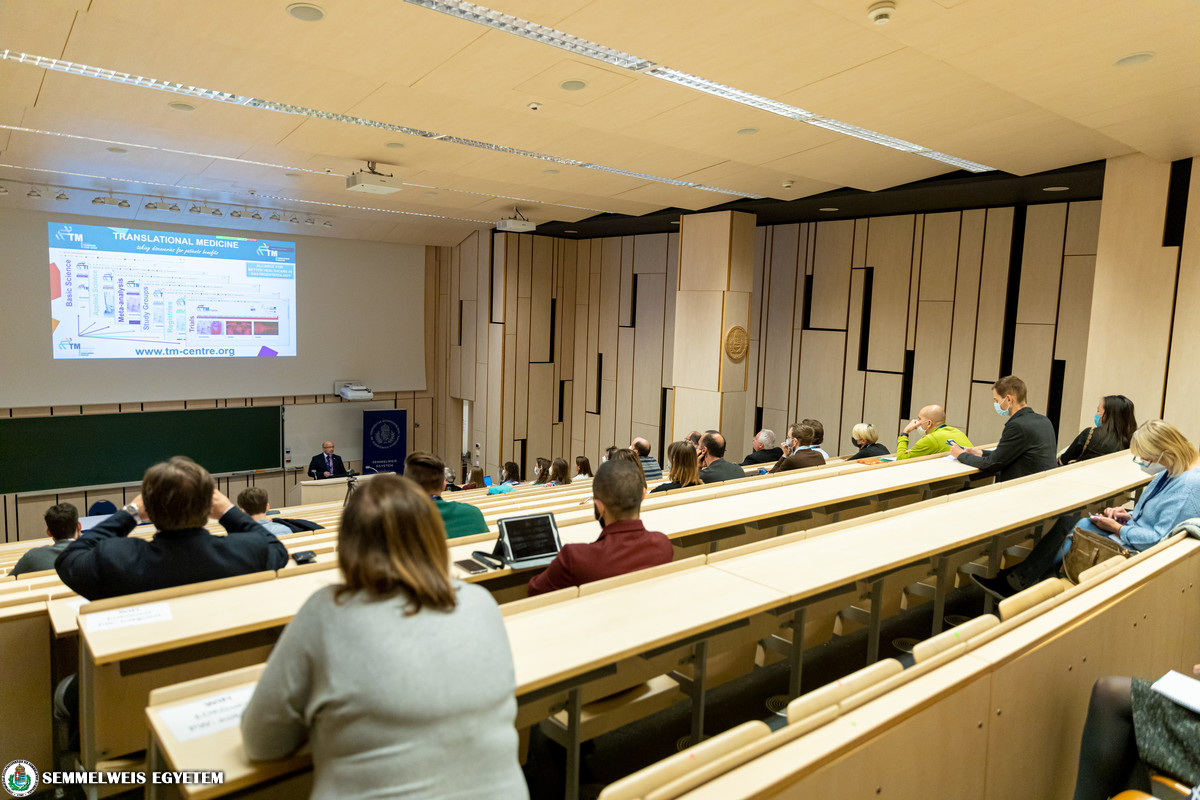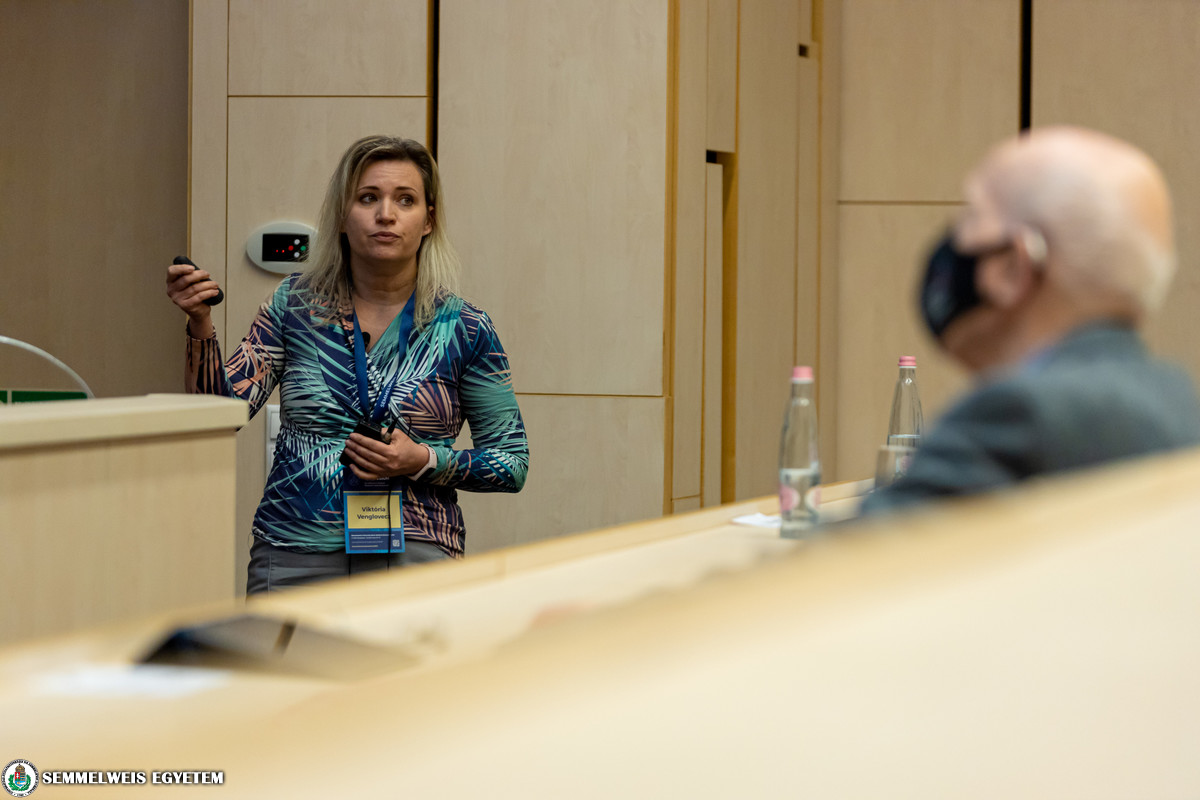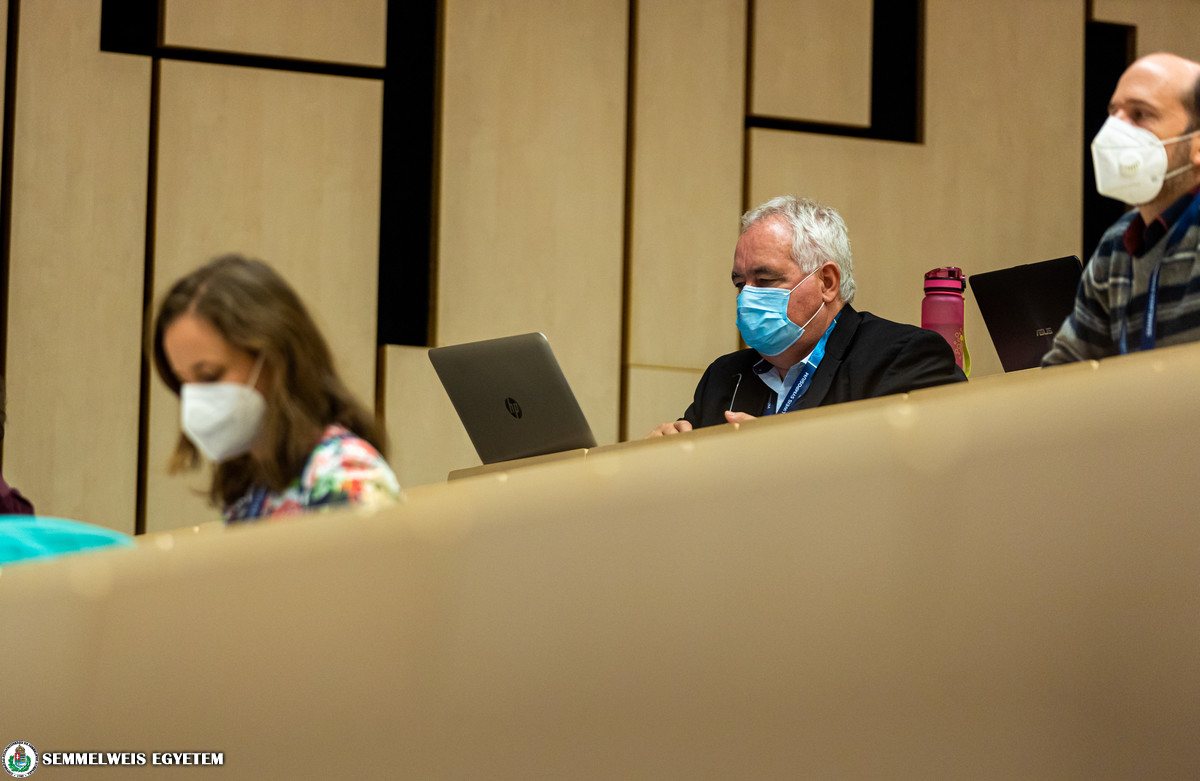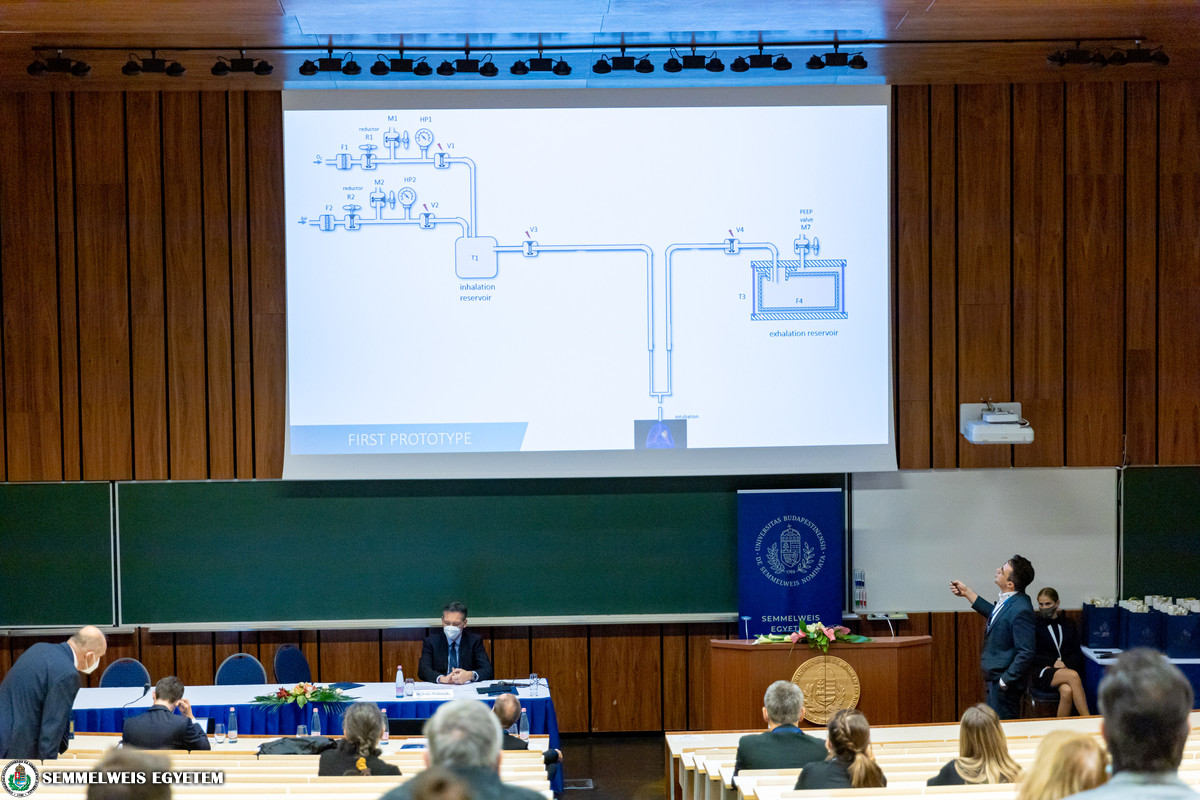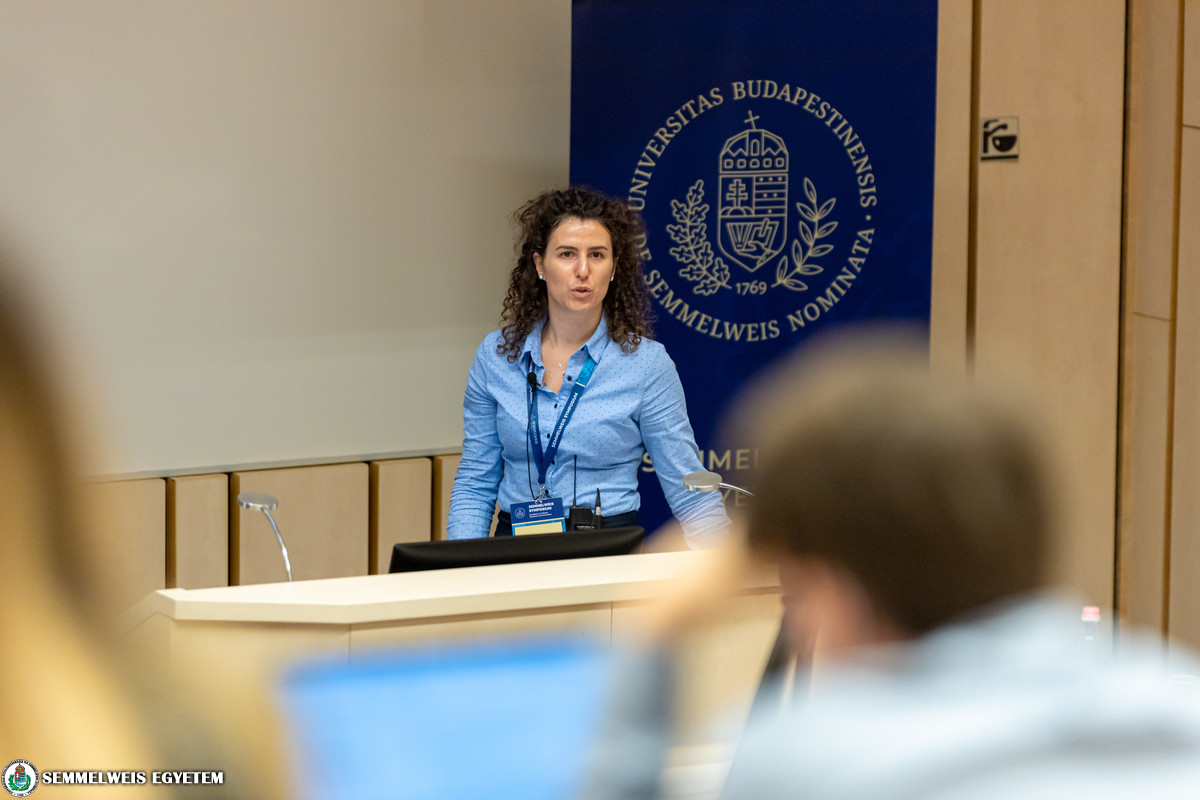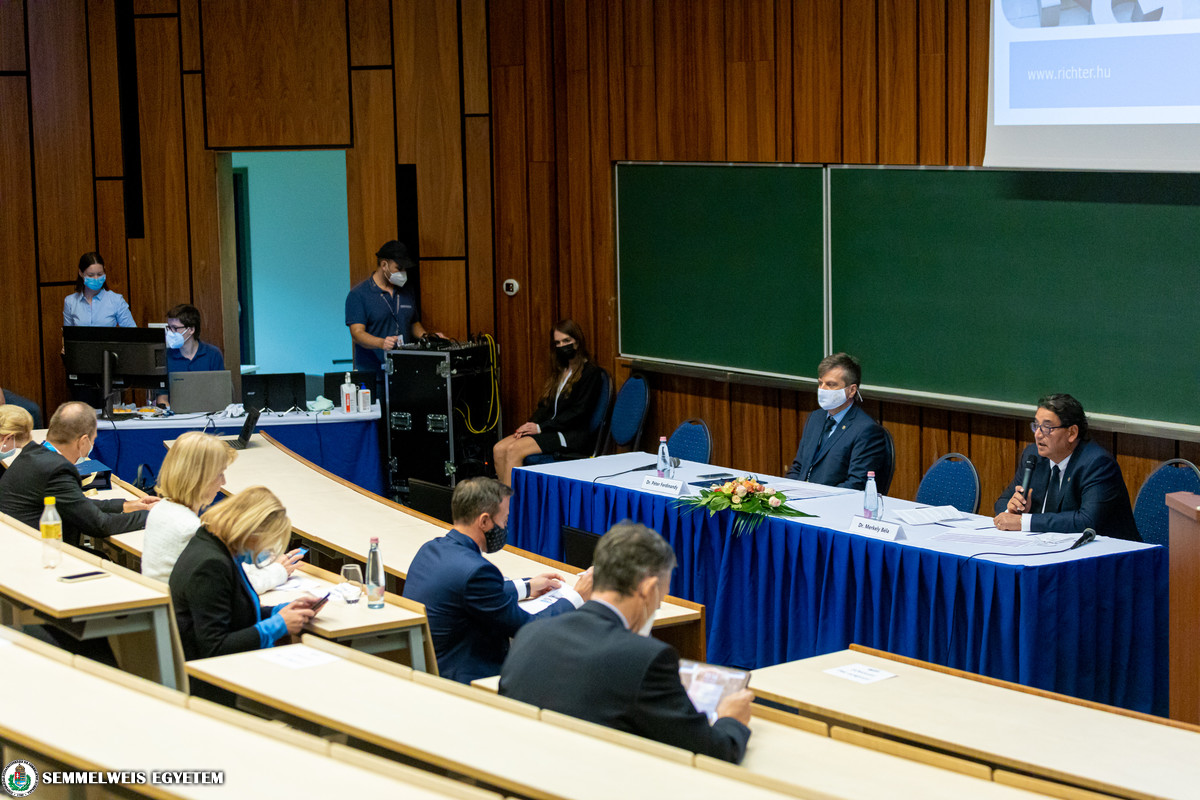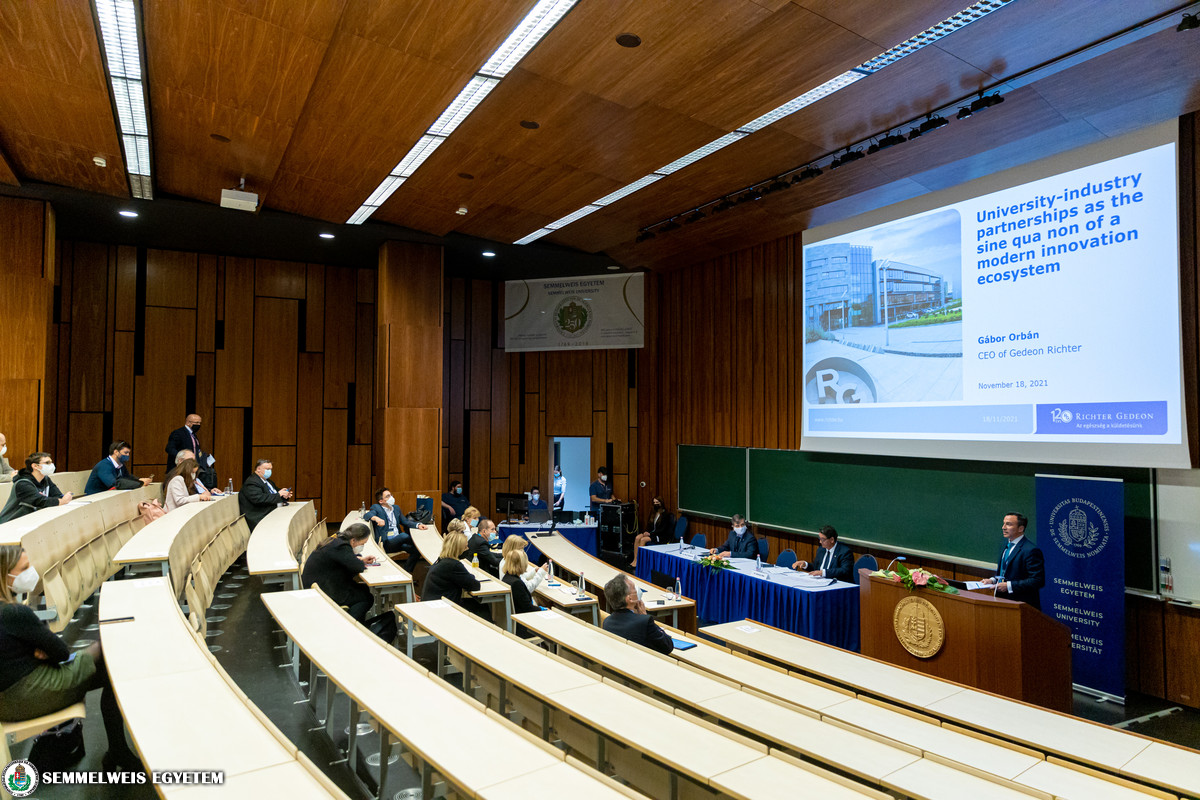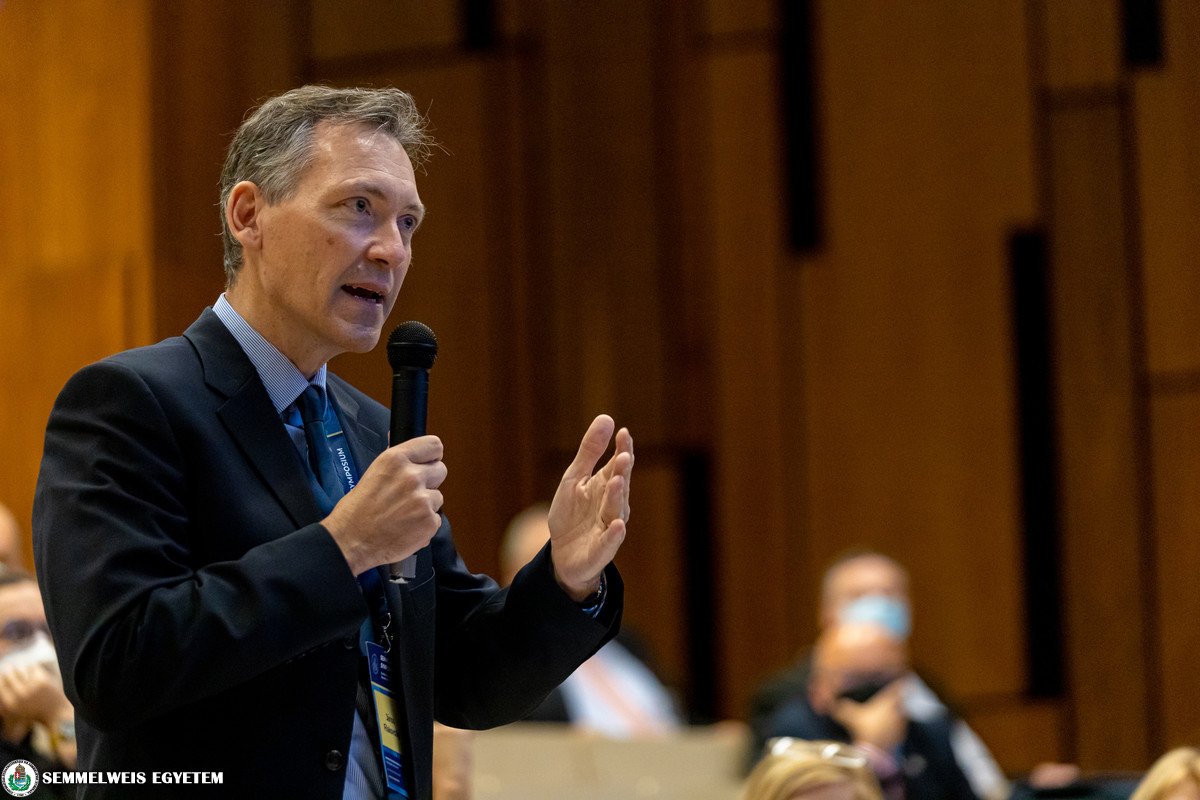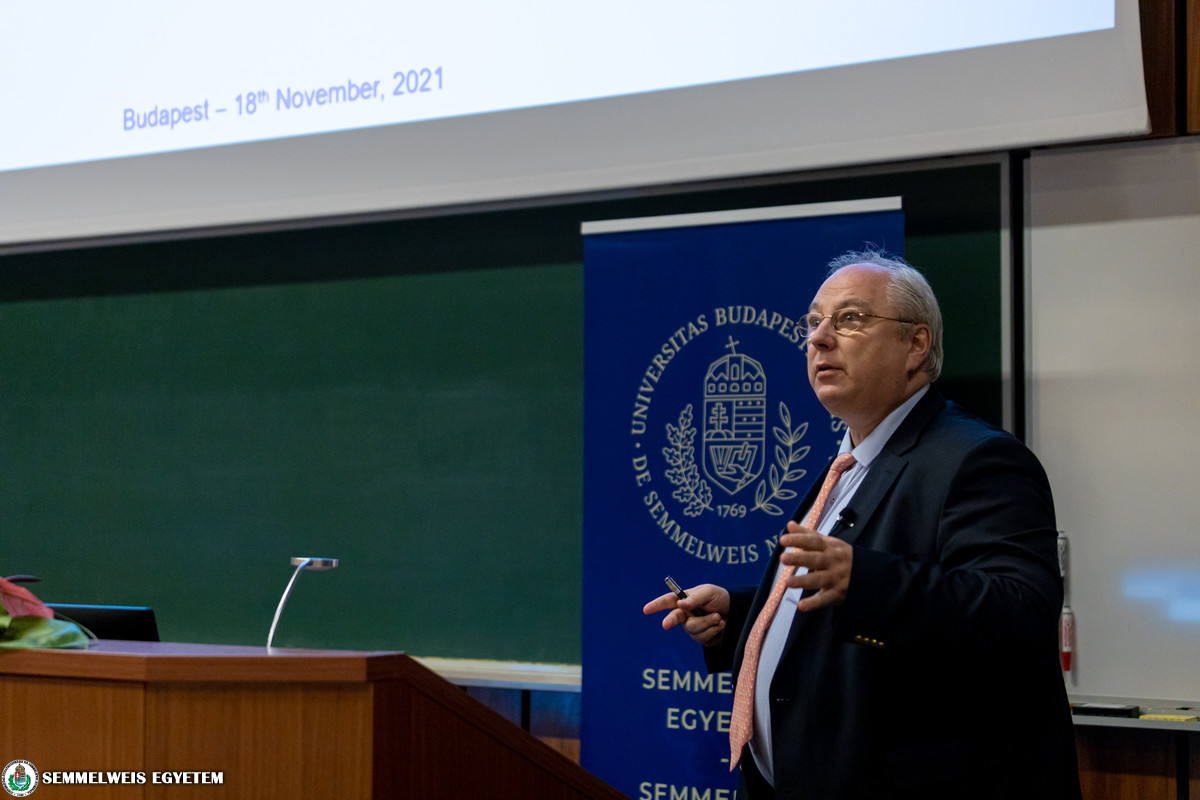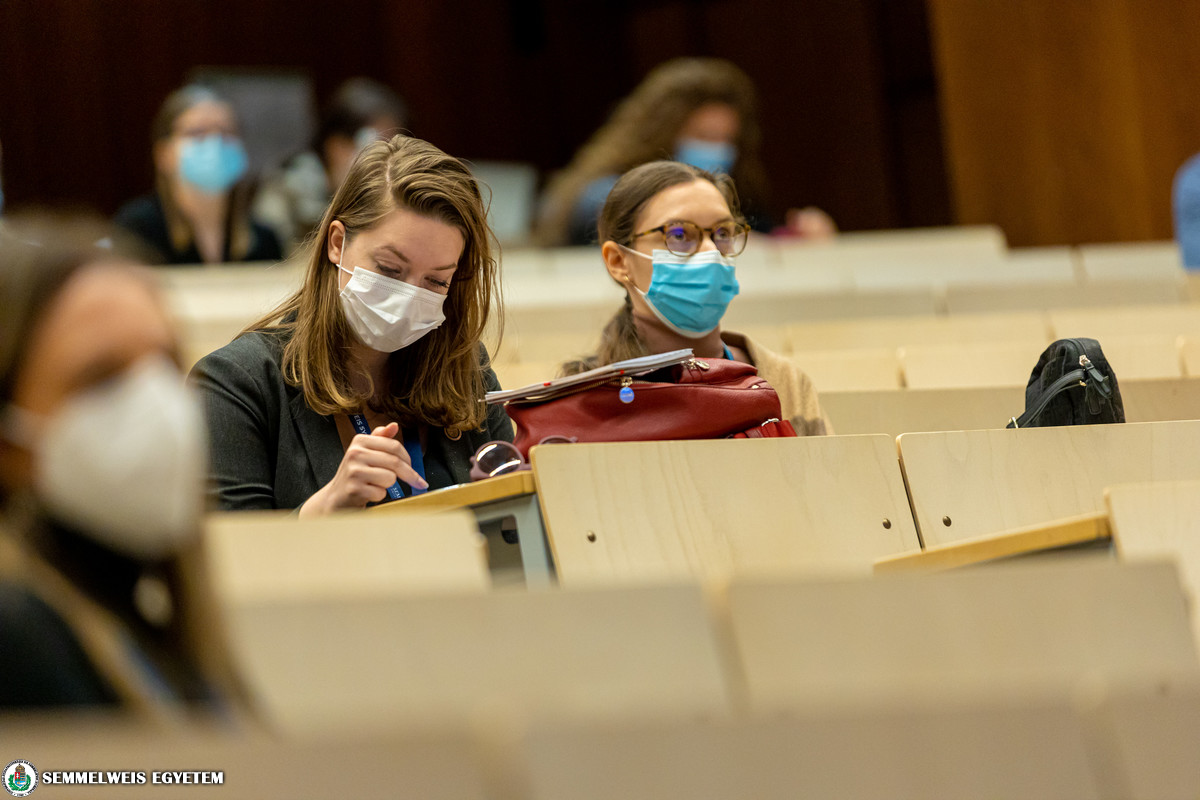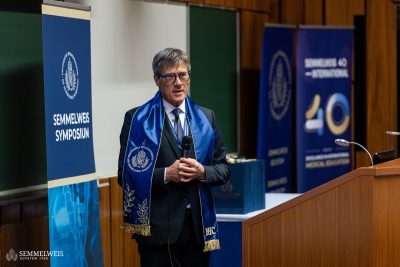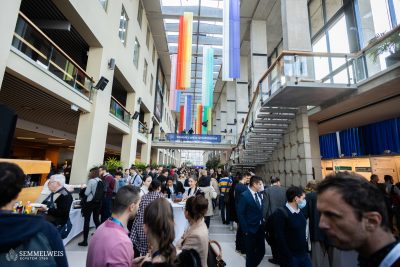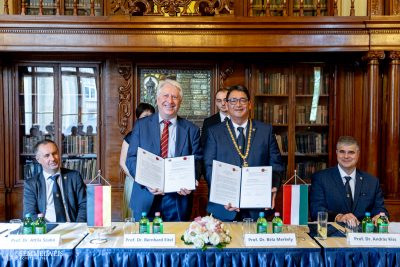Semmelweis Symposium had a high attendance on the third day on 18 November. On the closing day of the event, more than twenty lectures, including two keynote speeches, were presented in four sessions by speakers from Hungary, the UK, Germany and Italy. Dr. Péter Hegyi, Director of the Center for Translational Medicine.
The session chaired by Dr. Bálint Erőss (Semmelweis University Center for Translational Medicine) focused on investigator-initiated clinical trials. It was mentioned that study protocols always need to explain the purpose of the study and the methods used. It was also discussed that meta-analyses and systematic reviews can be conducted quickly and have a rigorous methodology for developing the clinical question and intervention.
The pediatric session was chaired by Dr Attila Szabó (Semmelweis University). Participants learned that precision medicine in pediatric oncology has evolved rapidly over the past decade and that, thanks to global collaborative initiatives, the integration of genomic and preclinical data can be more effectively used in the development of new targeted drugs in the future.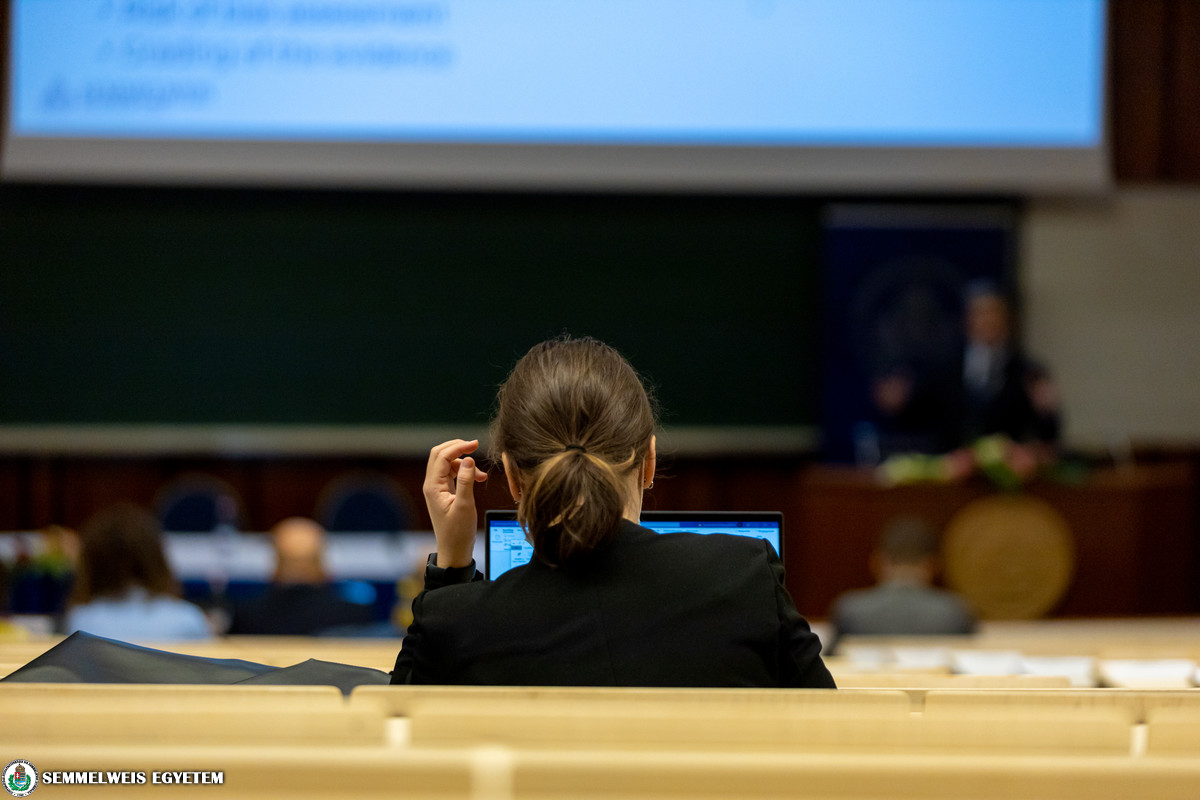 Information on the changing environment related to clinical development was presented in the session chaired by Dr. János Filakovszky (Semmelweis University Clinical Research Coordination Center). Data-driven solutions in COVID management were discussed in the context of supporting vaccination planning, monitoring social distancing, as well as currently untapped potentials in the context of data extraction for samples or new health safety doctrines.
Information on the changing environment related to clinical development was presented in the session chaired by Dr. János Filakovszky (Semmelweis University Clinical Research Coordination Center). Data-driven solutions in COVID management were discussed in the context of supporting vaccination planning, monitoring social distancing, as well as currently untapped potentials in the context of data extraction for samples or new health safety doctrines.
The session chaired by Dr. Péter Hegyi (Semmelweis University Center for Translational Medicine) discussed the translation of scientific findings for the benefit of patients, with a special focus on acute pancreatitis. The aim is to make the pathway between basic and clinical research as permeable as possible. Participants gained deeper insight and better understanding of the translational cycle, i.e. the relationship between health, science, knowledge and communication.
After the presentations, the keynote speeches of the closing day followed, which were preceded by an address by Dr. Béla Merkely, Rector of the Semmelweis University.
Gábor Orbán (Richter Gedeon Nyrt., Foundation for National Health Care and Medical Education) spoke about the partnership between the university and industry in the modern innovation ecosystem. He said that competition is no longer between companies but between business ecosystems. He added that the pharmaceutical industry has traditionally invested heavily in innovation, which he considers essential for its successful and efficient implementation. The CEO underlined that universities are play key roles in the R&D part of the ecosystem with multiple functions.
The second keynote lecture was presented by Stefan D. Anker (Charité University Virchow Clinic) on “Advanced cancer as a heart failure syndrome – Introduction to a new type of cardio-oncology research”. The speaker from Germany, who was not visiting Semmelweis University for the first time, sought to answer, among other questions, where an open-minded and truly translational approach to the topic of the presentation could lead, since as he quoted, “the sky is not the limit, it is your mind.”
All the contributed to the conference, which has been held regularly since 1992, with a current hot topic. As on the first two days, the audience had a great interest in the presentations on the third day of the symposium, which is demonstrated by high number of questions from the audience after the presentations.
Following the presentations, Dr. Péter Ferdinandy, Vice Rector for Science and Innovation, presented the best poster awards, which were won and presented by the following candidates: Eszter Petra Jurányi, Lukács Lesinszki, Ferenc Komlósi, Csenge Pajtók, Áron Bartha, Minh Tran, Anna Orsolya Simon, Tamás Varga, Roland Kasek and Lili Kotmayer. Posters for the symposium were on display throughout the three-day event. The Vice Rector concluded the event by wishing the Semmelweis Symposium every success for next year’s 30th anniversary Semmelweis Symposium.
Dr. Péter Hegyi , Center for Translational Medicine
Photo: Attila Kovács – Semmelweis University
Translation: Ágnes Raubinek
